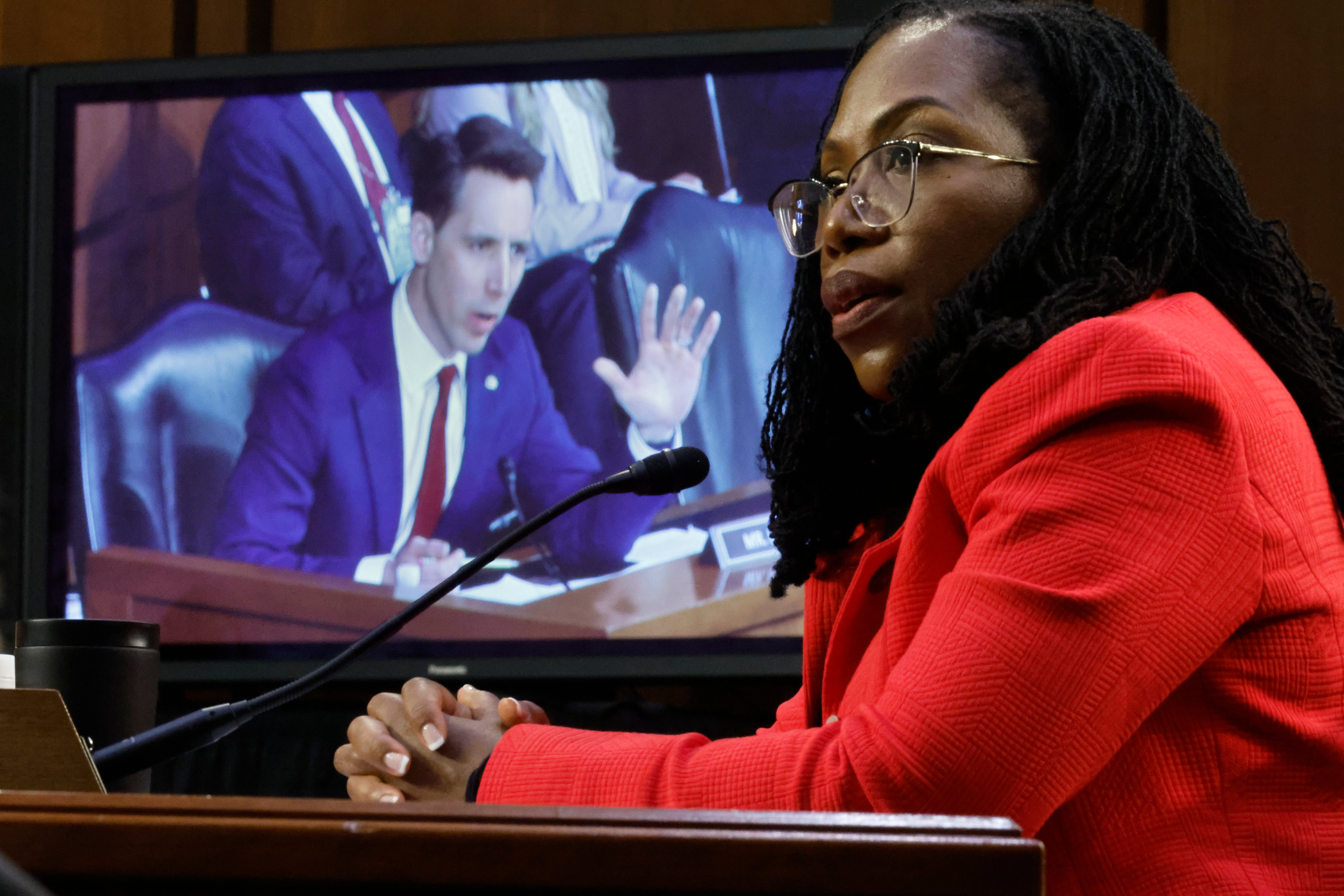Last week’s confirmation hearings of Ketanji Brown Jackson, the first Black woman to be nominated to the Supreme Court, were undoubtedly historic.
And yet the image of Jackson patiently providing information to a group of mostly white men as they slung aggressions, micro and macro, felt so … familiar.
It is not hyperbole to say America’s companies, our nonprofits, our startups, our boardrooms, our city councils, our school boards, our movies, our TV shows, our institutions big and small are built on these dynamics. The road to the high court is hardly exempt.
But these exchanges feel especially egregious and ill-fitting at a time when organizations are on the cusp of change and inclusion. Maybe because women of color are especially tired right now, of saving the country, of saving your toxic workplaces, of saving our kids and our parents and our partners and, if we’re lucky and have the time, ourselves during a deadly pandemic. The Senate hearings especially demonstrated a disconnect from this reality and underscored the deep dysfunction between Republicans and Democrats.
The ongoing polarization of (waves hands) everything invokes an existential question for many of us toiling to make mainstream institutions more diverse and inclusive. Why bother? James Baldwin articulated it best in The Fire Next Time: “Do I really want to be integrated into a burning house?”
The question can be applied to our workplaces, perhaps most acutely.
Baldwin’s famous line was invoked in a play at The Shed in New York City I saw this week: Help, written by Yale professor and poet Claudia Rankine. The narrator, masterfully portrayed by April Matthis, asks America to enact a new narrative that focuses on the whiteness of those in power. Rankine spent years asking white people about their identities and the role of race in their lives and privilege. She took what they told her, what she observed, and set the play in places of transit, literally. Airport waiting rooms, the line to board a plane, the flight itself.
Thus, the setting of Help is the corporate and workplace equivalent of the Senate committee we all saw last week: the world of business travel. You work so hard to fly first class only to be asked, over and over, as a woman of color, if you really belong there. People let their guards down, make small talk with the Black female narrator… and then tell her their kids didn’t get into college because they don’t “bring diversity.”
The same people who say they don’t see color, somehow, make everything about race. We saw this in senator Ted Cruz, the Republican from Texas, who asked Jackson whether babies are racist. Jackson paused. (“To many Black women, her seven-second pause spoke volumes,” The 19th News later proclaimed.) Finally, Jackson said: “I do not believe that any child should be made to feel as though they are racist, or though they are not valued, or though they are less than.”
Cruz also asked Jackson whether he would be able to identify as Asian instead if Hispanic if he so chose. It is questionable he would ask such questions of a white man.
What is needed for true change is not for women of color to simply enter the corridors of power. It is for them to redefine these spaces. Only that will help us cease being accessories to a bravado that makes our entry contingent on relinquishing and extinguishing ourselves in the process.
From the looks of the Senate committee room last week, there is an outdated version of America that some people are desperately trying to hold onto. Because women of color know the institutions they seek to penetrate cannot support them, they come prepared. So it was for Jackson, calm and collected for the entirety of her testimony. She cried twice, when senator Cory Booker, who is Black, and senator Alex Padilla, who is Latino, expressed support.
Then there was her entourage. Women of color take care of their families but loyalty works both ways. Jackson’s parents, her brother, her husband and their children showed up. In a poignant moment, she addressed the children directly: “Girls, I know it has not been easy as I have tried to navigate the challenges of juggling my career and motherhood. And I fully admit that I did not always get the balance right. But I hope that you have seen that with hard work, determination, and love, it can be done…”
By the look on 17-year-old Leila’s face, on a photo that went viral, all was forgiven. The photograph was taken by Sarahbeth Maney, a Black photographer at work for The New York Times, and she explained to the Today show why she wanted to capture the special moment. “I felt the admiration that she held for her mother but also the pride she experienced as a young Black woman. Her look also reveals a glimmer of hope for her own future. I understood this and snapped the photo, feeling as if I caught the power of that look.”
The photographer goes on to explain her own connection to the story: “Being in that room, I understood a little of what judge Jackson was going through. I know what it takes to make a place for myself in spaces that were not designed for me.”
